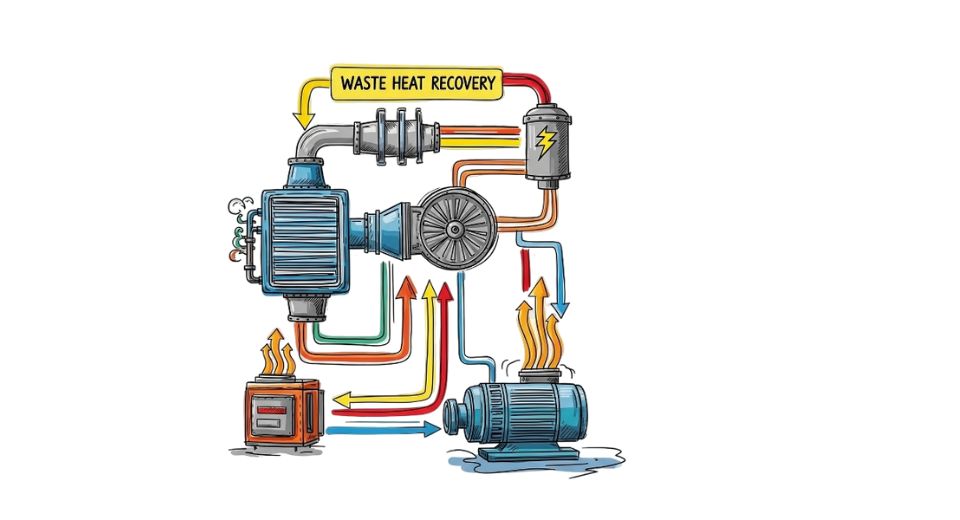
Jul 09, 2025

The newly released report by Metastat Insight explores the profundities and emerging direction of the Global Waste Heat Recovery Market, highlighting emerging trends and industry changes that characterize its status quo. With heightened importance placed on energy efficiency across sectors, the use of technologies that utilize waste heat has become all the more critical. This survey offers a nuanced view of the manner in which waste heat recovery systems are etching out an increasingly significant role among industrial plans globally, mirroring shifts not only in the adoption of technology but also in thinking on operations. In many industries, previously wasted heat that flowed unseen into the atmosphere is now seen through a more strategic eye.
Industries, especially those based on energy-intensive operations, are finding pragmatic routes for harvesting and recycling this secondary thermal energy. What was previously likely to be viewed as a byproduct is now being recovered progressively to energize internal functions or supply auxiliary systems, providing improved performance without extra resource investment. This shift toward more intelligent thermal management reflects a significant shift in how industrial byproducts are being reevaluated for their complete energetic worth. One key to this shift is the sophisticated methodology of infrastructural adaptation. Instead of mass changes, a significant number of operations are choosing modular integrations, meaning waste heat recovery solutions can be customized and sized based on current systems.
This level of flexibility is attractive to various industries, ranging from cement production to oil refineries, where implementation of such systems needs to be compatible with pre-existing constructs. The shift towards more flexible deployment has increased the availability of these solutions and therefore spread them more widely. In addition, the co-creative environment that fuels these transformations has become more vibrant. Technology suppliers, system integrators, and industrial participants are entering into conversations that transcend transactional partnerships. This intersection is driving bespoke innovations that directly address the subtle needs of individual operations.
These interactions also enable sharpening of the feedback loop between solution creation and real-world implementation, permitting ongoing tuning that moves in tandem with operational issues. Regional dynamics also create a multifaceted picture of growth and adoption. Where certain geographic areas display increased technological uptake as a result of policy arrangements or economic models, others indicate retarded advancements, frequently associated with infrastructural constraints or cost obstacles. Even in regions where extensive deployment is impossible at the moment, though, smaller pilot projects and feasibility studies are laying groundwork for future enlargement.
These regional differences don't weaken the momentum but simply reflect the range of preparedness and multi-layered strategy necessary to address unique challenges. The cultural aspect of embracing waste heat recovery solutions cannot be overlooked either. Increasingly, in corporate lore, there is recognition that energy reclamation is not just a technical factor but also one of reputation. Companies that invest in such systems are coming to position themselves as visionary caretakers of resources, a message that appeals to stakeholders as diverse as investors and end-users. Such congruence of environmental stewardship and industrial practice is emerging as a tacit undercurrent, strengthening the twin mandate of efficiency of operation and environmental responsibility.
On the innovation front, the technological canvas keeps growing. Although basic approaches to waste heat recovery continue at the core, advances in material science, control technology, and integration tools are expanding performance limits. As such, their commercialization offers new prospects for application in heretofore inappropriate environments. The knock-on effect of such technologies is palpable, evident in the way firms adjust their long-term strategy to include heat recovery as an integral part of future-proofed infrastructure rather than something to be retrofitted as an upgrade. It's also interesting to observe how data analysis and monitoring software are gaining increasing traction in streamlining these systems.
Live real-time insights enable tighter calibration, lower downtime, and better return on investment. This technology convergence of hardware and software is facilitating a more natural management of heat recovery systems, so they operate consistently in varying circumstances. The increasing level of sophistication in these tools shows how the industry is not only broadening in scope but also in smartness of operation. Workforce development of these technologies is also quietly defining the market. With increasing demand for specialized technicians and engineers comes the retooling of training programs and academic routes to incorporate this niche. This shift in education, subtle as it may be, is a bellwether for a larger alignment between industry demands and institutional response, providing a pipeline of talent designed to fuel long-term expansion. The continued revolution chronicled in the just-released report by Metastat Insight for the Global Waste Heat Recovery Market offers more than a snapshot of current positions.
It offers a detailed sketch of an industry that is quietly reshaping industrial efficiency through the prism of thermal energy recycling. This energy, formed not on grandiose claims but on small but deliberate steps forward, betrays a sustainable trajectory. As industries continue to rethink their relationship with energy, the recycling of waste heat is not only becoming the norm but is increasingly considered a key part of industrial development.
Drop us an email at:
Call us on:
+1 214 613 5758
+91 73850 57479